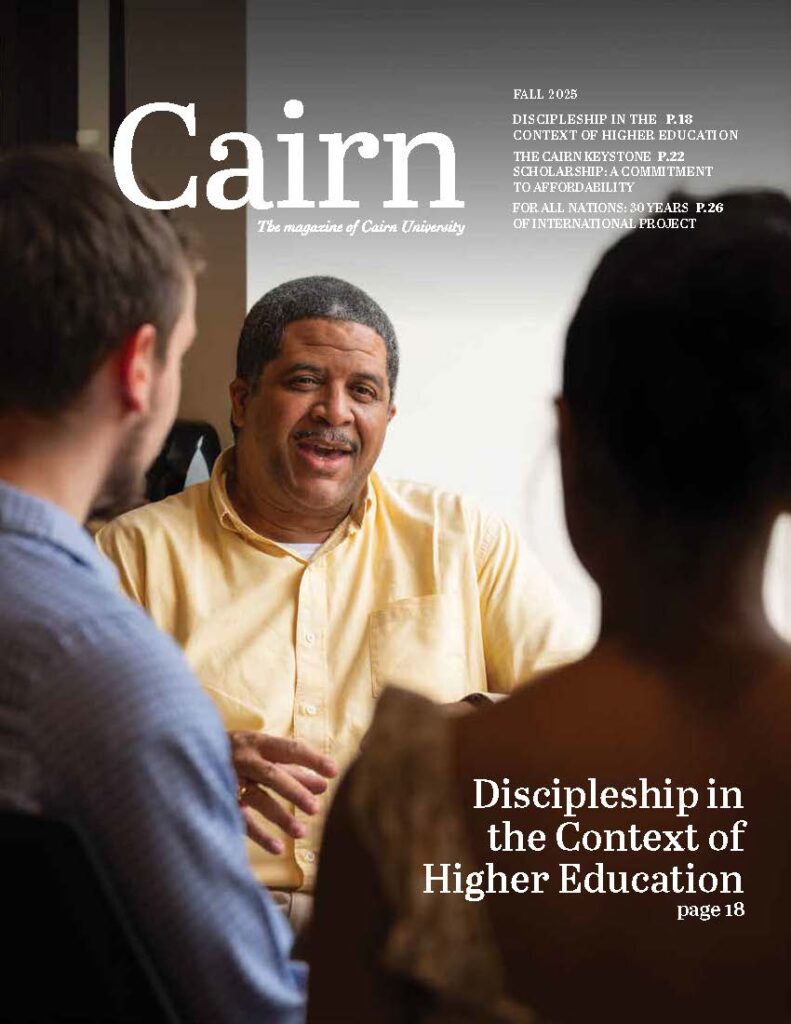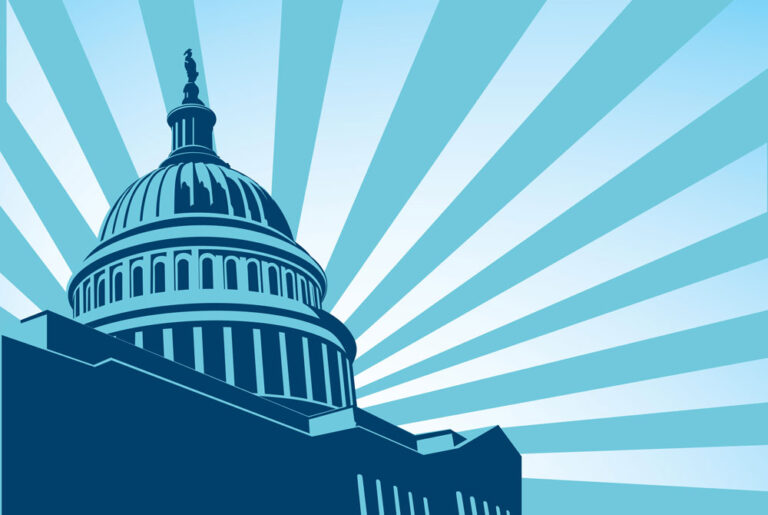They call it a “semiquincentennial,” and that’s a mouthful: July 4, 2026, will mark the 250th anniversary of America’s founding at the signing of the Declaration of Independence in Philadelphia. The entire nation is gearing up for a year-long celebration of this historic milestone. Organizations in both the public and private sectors have been planning, in some cases for more than a year. From grand public events to thinly attended lectures in public libraries and university halls, from the sale of schlocky commemorative memorabilia to the exhibition of works of art, from countless op-eds to weighty historical works, there will be much to remind us of the significance of this year. There will be much history, introspection, and prognostication. And, given the political and cultural climate of the day, there will be no shortage of disagreement about what to celebrate, how to celebrate, or even whether to celebrate this nation’s 250th. I have little doubt that even something that should be as politically transcendent as a semiquincentennial will be politically divisive. That dynamic itself is worth consideration and discussion. But it seems to me also fitting to reflect upon what this historical mile marker signifies—what it calls us to remember and reflect upon as citizens of these United States of America.
In the great unfolding of human history, nations come and nations go. Empires rise and fall. Maps change. Flags and banners fade from usage, and only written history, songs, stories, and art preserve the images, ideas, and records of nations that have gone the way of all flesh. Still, an argument can be made that nations are the way of this world. While they are not the way of the world to come, they are, by God’s sovereign design, how this world is ordered. At Babel, humanity is dispersed by God himself to remind it of its limits and restrain that most pernicious sin of rebellion, declaring, “we would be God,” a sin which has plagued humanity from the Fall.
There is no aspect of human experience or expression immune to the impact and implications of sin and the Fall. History has shown that governments, nations, leaders, and citizens can be instruments of misery and destruction. But the truth of God’s common grace and the stamp of Imago Dei upon humankind also allow these things to be instruments of good, however flawed they may be. It is with that honest and robust perspective of human nature that we as Christians should look at history and nations, view our biblical obligations to be good neighbors and good citizens, and reflect on and even celebrate our history. I am often struck by conversations I have with people who believe it is somehow inappropriate for Christians to celebrate something like America250, yet they will don team colors and take time off from work to attend the Super Bowl parade of their victorious favorite team. Are professional sports exempt from perpetrating injustice, exploiting others, exhibiting greed, or being comprised of people whose character and morality we may find personally offensive? Of course not. So perhaps it’s not that heavy a lift to consider what there is to celebrate about America achieving the 250-year mark. People celebrate things of much less significance and much more frivolity.
That fateful summer in 1776, a group of men gathered at great personal risk to make a difficult decision to found an independent nation that would change the course of history, not just for itself, but for the world. They did so not as an angry mob venting emotional outrage and political dissatisfaction, not as a bloodthirsty movement intent on foisting its political will on others, and not as agents of an ideology intent on shedding itself of the yoke of divine moral authority. No, they did so carefully, thoughtfully, and with respect for history and a commitment to posterity. They did so with a firm belief in human equality, inviolate God-given rights, and the benefits and blessings of individual freedom and liberty. They did so with clear and persuasive arguments that made their case compelling enough to forge alliances needed for victory and inspired other nations to pursue democracy. They also unified the colonists to such a degree as to sustain their efforts through years of hardship and war against the world’s greatest power. They resolutely ratified a Declaration of Independence, which would be read on the steps of churches and taverns across the colonies and would become the soul of the nation, providing the philosophical and moral foundation of the United States Constitution, which in 1787, would define the structure and function of the government of the new Republic. Not only would they ratify this Declaration by voting but they would sign it for all to see. By doing so, many believed they were in fact signing their death warrants. The closing line is a profound one: “And for the support of this Declaration, with a firm reliance on the protection of divine Providence, we mutually pledge to each other our Lives, our Fortunes and our sacred Honor.” These were not just men of intellect and ideas. They were men of action who risked capture and execution for their “treason.”
In the required US Government and Civics course I teach at the University, we spend quite a bit of time on the American founding and the Declaration of Independence. Students read this document and exposit the text thoroughly. We discuss the context, both historical and human. We explore the basis of the founders’ ideas regarding rights and independence, freedom and liberty. We discuss the importance of this document to the writing of the Constitution and the building of the new nation. We also discuss the aspirational nature of the language written at a time when the institution of slavery still existed in America, and we talk through the moral and political implications that lead to sharp political division and eventually the bloodshed of the American Civil War, testing, as Abraham Lincoln said in his Gettysburg Address, “whether that nation, or any nation so conceived and so dedicated, can long endure.” The American founding is dramatic, moving, complicated, and profound. And this not just because of what happened, but why and how it happened. And I believe that is worth celebrating as we mark the 250th anniversary of the signing of the Declaration of Independence and our founding. Much was at stake. Much was sacrificed. And much was accomplished. A nation was born. A democratic republic that rests upon the pillars of self-governance, the rule of law, limited government, individual liberties, and the private ownership of property that though often shaken, has now endured for two and a half centuries. And though debates may still rage, history demonstrates that much good has come of it.
The question now, as we celebrate America250, is whether we have the resolve to preserve, defend, and care for what has been wrought by the founders and framers, and every generation since; whether we still believe in our founding principles; and whether we still think it matters, as Lincoln said, “that this nation, under God, shall have a new birth of freedom—and that government of the people, by the people, for the people, shall not perish from the earth.”










